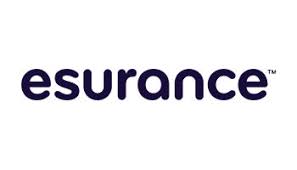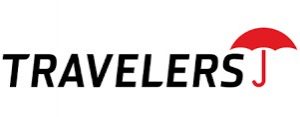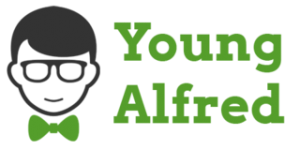Top 5 Homeowners Insurance Companies in Illinois 2026
Homeowners insurance is an important consideration for everyone who currently owns a house or is considering a purchase in the near future.
While not a legal requirement for all homes in the same way as auto insurance, this type of protection is often required by mortgage lenders.
More importantly, it’s a sensible way to keep what is often a family’s single most valuable asset safe from a range of potential perils.
Your home is also a crucial part of your life, a place where you rest, relax, spend time with your family, and much more.
Making sure that your home and the possessions inside it are protected in case of a disaster is a vital consideration.
Homeowners Insurance in Illinois

One major positive for Illinois homeowners is the wide range of property and casualty insurance companies operating within the state.
With so many options available, it’s that much easier to compare policy specifics, premium costs, supplemental coverage options, and potential discounts to find the deal that works best for your needs.
Because the cost of an individual Illinois homeowners insurance policy can vary so greatly, based on everything from the materials used to build the home to its location within the state, comparison shopping efforts are especially important when it comes to home insurance.
Although policies for homes that seem very similar can vary significantly, it still helps to have a general idea of the average costs.
The National Association of Insurance Commissioners issued a comprehensive report of home insurance costs based on data from 2015, noting that the national average cost for the very basic, limited HO-1 homeowners policy was $1,412.
In Illinois, that same policy carried an average price tag of $582.
The Insurance Information Agency found that the more comprehensive HO-3 policy had an average national cost of $1,192.
The same policy in the Land of Lincoln costs $1,042.
We are here to help you find the best Illinois homeowners insurance option for your needs, with resources ranging from reviews of top insurers to information about how to maximize the value of your policy.
5 Best Homeowners Insurance Companies in Illinois
While you’ll need to explore your options and track some important information before you can make an informed decision about Illinois homeowners insurance, the potential to save money and find the best possible insurance policy for your needs make this exercise worth it.
Consider these top insurers in Illinois as a starting point for your research.
#1 Lemonade
Lemonade is a direct insurer, although it operates differently than many similar companies.
As a B corporation, it donates excess premiums to causes selected by its shareholders.
While Lemonade is a very new company, founded in 2016, it is underwritten by Lloyd’s of London and XL Catlin, both of which have long track records.
While not rated by the traditional independent analysts like Moodys, it has a stability rating of A-Exceptional from Demotech, Inc., which rates many smaller, newer, and more regional insurers.
Lemonade offers a strong, although online-only, customer experience, as well as a standard mix of coverage options and discounts.
#2 SelectQuote
In contrast to Esurance and many similar insurance companies, SelectQuote doesn’t provide any insurance policies directly.
Instead, it serves as an insurance marketplace, where customers can find a variety of different individual insurers offering policies.
This is a valuable offering for those shopping comparatively before making a final decision.
It’s important to remember that, while SelectQuote has operated since 1985 and offers a strong starting point, thoroughly vetting the insurer you want to select before moving forward is essential.
SelectQuote has an especially high rating from both the BBB and Trust Pilot, with an A+ and 9.4/10 score, respectively.
It offers a variety of coverage options, thanks to the range of insurers it works with.
Our own in-depth review found customers saved an average of more than $400 on home and auto insurance when working with SelectQuote.
#3 Esurance
Esurance offers an effective mix of reliability, ease of use, and competitive costs.
As a part of Allstate, it has a dependable underwriter.
It also provides a strong customer experience even though it uses a purely online structure as opposed to agents with physical offices.
This approach also allows some customers to realize meaningful savings.
This insurer isn’t accredited by the Better Business Bureau, although its headquarters location has a strong A- rating from the watchdog group.
However, Trust Pilot only rates the company at 5.4/10. Esurance offers a variety of primary and supplemental coverage options.
#4 Travelers
One of the most durable names in insurance, Travelers has more than 160 years of history behind it.
That means its policies have exceptionally strong backing, which is reflected in the ratings provided by independent analysts such as Standard & Poor’s (AA) and Moody’s (Aa2).
Travelers has a much more traditional approach to customer service than other companies listed here.
It has generally high marks for such efforts, and enjoys an A+ rating and accreditation from the BBB.
Travelers offers an especially broad range of primary and supplemental coverage options, and provides some common discount option to help reduce the monthly bill for Illinois homeowners insurance.
#5 Young Alfred
Young Alfred is another relatively new entrant to the home insurance marketplace.
As an insurance marketplace, as opposed to a direct insurer, it doesn’t need a long track record to provide dependable coverage.
Users just have to vet the individual company they select before moving forward.
Young Alfred enjoys a 9.6/10 rating from Trust Pilot, and a 9.4/10 in our own review.
Because it connects homeowners with several different potential insurers, Young Alfred has especially high marks in terms of the types of coverage it provides, as well as the options for discounts.
Additional Homeowners Insurance in Illinois
You’ll want to make sure your Illinois homeowners insurance policy covers certain perils that are common in the Prairie State.
Specific risks are highly dependant on factors such as the location of your home and its construction.
However, certain issues to remain aware of in Illinois include heavy winter storms, tornadoes in the central and southern parts of the state, and flooding near large bodies of water. With that in mind, some specific types of coverage to consider adding to your policy include:
- Flood insurance: Flood insurance is a vital consideration for those who live in areas prone to this type of peril, and is often required in that context. Flood insurance is a special type of coverage managed by the federal government and provided in conjunction with insurance companies.
- Food spoilage: Power outages may be caused by everything from severe snowstorms to tornadoes. Coverage for food spoilage means you don’t have to take a loss on the contents of your refrigerator and freezer should it take a long time to restore power.
3 Tips for Buying Homeowners Insurance in Illinois
Comparative shopping can take you a long way in terms of finding an effective insurance option at a competitive cost.
Use this guidance to make your search that much more effective:
- Know what you need: Some types of primary and supplemental coverage simply won’t be applicable to your home. Be sure you know what you want to protect, what may not be important and what is totally irrelevant before seeking out a policy.
- Don’t rush into a decision: Homeowners insurance is an important consideration. It ensures your home will be protected from the aftermath of a variety of perils, but only if your insurer is financially stable, trustworthy and dependable. Be sure to carefully vet the companies you’re interested in working with, and don’t only use cost as a determining factor. Be sure they can support you when the time comes to put the policy you pay for to good use.
- Dive deep into discounts: Many insurers offer discounts for a wide variety of different conditions, from having smoke detectors and fire extinguishers in place to bundling additional types of coverage together into a single package. While some discounts are common, they generally aren’t standardized. Be sure to talk to potential insurers about the available options and if you qualify.








